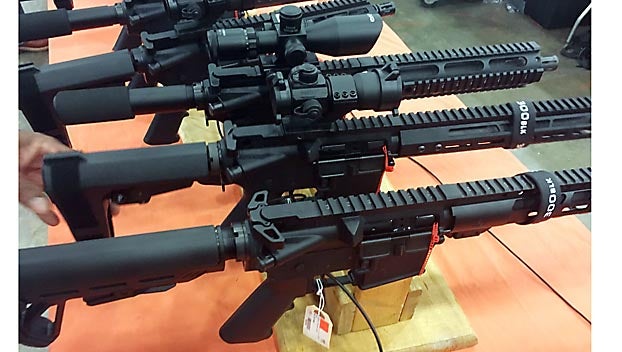Deadly Dixie pipeline: How Mississippi guns wind up in hands of Chicago gangs
Published 3:01 pm Thursday, August 29, 2019
By Justin Vicory
For close to seven years, a Mississippi man bought firearms in and around Natchez before sending them to contacts in Chicago, many of them family members he grew up with.
Once there, the weapons would find their way to the streets of some of the city’s most violence-plagued communities and be used in homicides, shootings and other crimes.
In one case, in 2014, a bullet struck college freshman Malcolm Stuckey in the back of the head, killing him, as he tried to flee two known gang members. The 19-year-old, an honors student with no criminal record, was attending a birthday party, according to the Chicago Tribune.
Two men were charged with murder. Only one, Michael Wade, 28, went to prison. Wade was convicted of aggravated battery with a firearm and sentenced to 28 years and an additional 12 years for backing out of a deal to testify against his co-defendant, records show.
When police recovered the weapons, it led them back to Jonathan Smalley, 32, a resident of the southwest Mississippi city of Natchez.
Smalley, who does not have a federal firearms license, bought a total of 32 firearms in the Natchez area between May 18, 2009, and May 12, 2016, according to federal court documents.
Phone records show Smalley reached out to his contacts in Chicago after purchase and sent pictures of the guns and the U.S. Postal Service receipts that guaranteed their delivery.
The Dixie pipeline
Smalley’s case is just one example of many of the deadly gun violence in the Windy City, said Chicago officials and federal officials — some of them with undercover expertise. So far this year, 320 people have been killed in Chicago, 44 fewer than this time a year ago,
More illegal guns consistently wind up on the streets of Chicago and are recovered than in any other major city. About 60% of all recovered guns come from outside Illinois, according to a Gun Trace Report conducted by the city of Chicago, its police department and the University of Chicago Crime Lab. A large number of them come from Mississippi.
Federal court documents going back years spell out the inner workings of the gun trade between the two locations, where gun traffickers “conspire” to illegally buy firearms in pawn shops and gun stores in Mississippi and transport them to Chicagoans, many of whom are known gang members.
“It is self-evident that the availability of illegally circulated firearms in Chicago is directly connected to its deadly street violence,” the report concluded.







